Event Reports
The 5th Asia Pacific Research Integrity Network Meeting (APRI2023 TOKYO) (20-22 Mar '23)
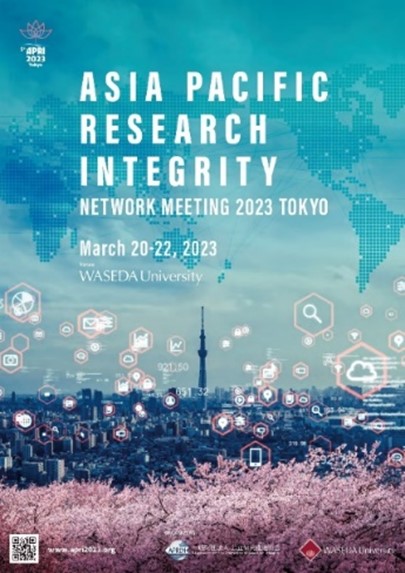
"Research Integrity System of Japan in the view of International Comparation"
Mr.Takaaki Matsuzawa (Senior Science and Technology Policy Analyst, Science and Technology Policy Bureau, MEXT)
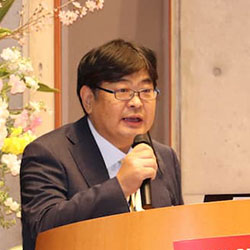
Mr. Matsuzawa said, "Since formulating the guidelines in 2014, we've made efforts to improve research integrity in Japan, and we felt a sense of accomplishment. Despite this, why is Japan still regarded as a country with a lot of misconduct by those overseas?" "I want to verify the validity of this approach and present my thoughts on the future of research integrity in Japan."
He analyzed the characteristics and current state of research misconduct in Japan, and demonstrated the following characteristics thereof.
1. There are about 10 cases of research misconduct each year, and the amount of papers withdrawn is the third highest in the world.
2. Six Japanese were ranked within the worst 20 repeat offenders.
3. Some senior researchers attempt research misconduct, but ethical education is mainly given to young researchers.
4. Immature research integrity system
Mr. Matsuzawa explained that the research integrity system in Japan is one with no research integrity bureau to monitor and supervise the self-regulation of research institutions in accordance with national guidelines. For this reason, he said that the possibility is considered that unfairness may arise when judging misconduct at the research institution level, that there is no specialized institution to recommend corrective measures from a neutral and objective standpoint, and that ensuring the research integrity system's transparency is an issue in Japan.
Mr. Matsuzawa concluded by saying, "The research integrity system in each country has advantages and disadvantages, and they depend largely on the research culture and social environment. Japan's research integrity system has some poorly developed elements compared to those of other countries, and we should study the system design according to Japan's national characteristics. In the future there will also be a need for an institution like a research integrity bureau that is neutral and impartial to eliminate differences, etc. at the research institution level and to ensure objectivity in the research institution's certification of misconduct investigations."
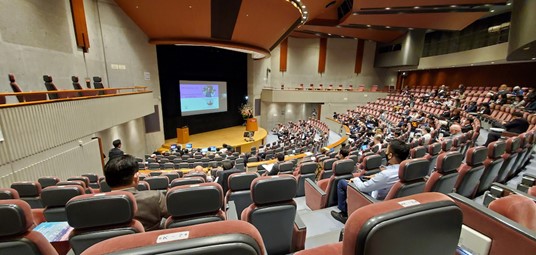
"The Promotion of Research Integrity in Taiwan: A Ten-Year Experience"
Professor Chien Chou (Chair Professor, Center for Teacher Education, Institute of Education, National Yang Ming Chiao Tung University)
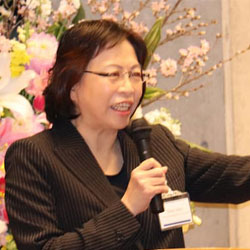
In Taiwan, the Center for Taiwan Academic Research Ethics Education (AREE) was established in 2014 with the support of the relevant Taiwanese authorities, and is now a major platform that provides various resources, services, and online/offline learning systems.
With regard to RCR education, she explained that it was a turning point in education "from teacher-centered to student-centered, from being taught to learn by oneself," and that the "3-L Design Model," teaching materials and an educational environment for young people were developed. Depending on the learning style (formal/informal), the learning approach (teacher/student-centered), and the learning environment (online/offline/o2o), the 3-L Design Model allows students to choose how to allocate resources and how to learn while considering each model. She reported that setting learning objectives, designing educational activities, and developing relevant materials and assessments enabled meeting the students' needs and maximizing the results of RCR education.
※1 "The present situation of and challenges in research ethics and integrity promotion: Experiences in East Asia"(Chou C, Lee IJ, Fudano J, Account Res., 2023, Jan 15, p 1-24)
[FY2022 National Conference for the Research Integrity: Meeting for Research Integrity Officers and Research Administrators]
"Current Status and Issues of Research Ethics and Integrity Education For Promoting the Enhancement of Research Abilities"(Chair: Mr. Shuichi Toya, APRIN Coordinator)
- Initiatives of APRIN (APRIN Secretariat)
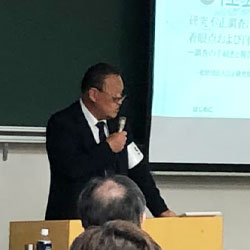
- Previous Advocacy Activities and Use of New Materials for Research Ethics Education--Through Video Materials Developed by JST
Mr.Motoo Takayanagi (Deputy Manager, Research Integrity Division, JST)
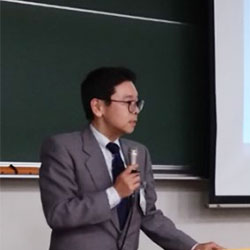
Lastly, Mr. Takayanagi shared Professor Fudano's words, "We should share the understanding that the purpose of RCR education is not only to prevent research misconduct and questionable research activities but also to promote responsible research activities, and to encourage scientists and researchers, which will consequently enhancing everyone's well-being." Mr. Takayanagi emphasized with the importance of both perspectives, including not only preventive ethics but also aspirational ethics.
"A Vocational Virtues Framework for Ethical Professional Practice"
Professor Robert T. Pennock (Distinguished Professor at Michigan State University)
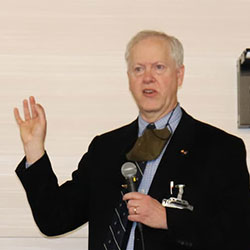
The scientific telos (the scientific purpose) is to further deepen humanity's understanding of individual events and to be useful to society. Scientists wish to bring benefits to society. One value of a career as a scientist could be the feeling of becoming part of human history. By making discoveries, scientists can learn about the scientist's role and about the 'function and contributions of their inventions to humanity.' A scientist's purpose is to discover and understand new things and to understand how nature works. Their purpose lies in helping humans through knowledge.
In addition, for more than a decade, we have developed and implemented the RCR training curriculum, and the Scientific Virtues Toolbox (SVT), in line with the idea that we should stay positive. We are going to discuss the theme of scientific virtue and what it means to keep ethical practices."
Finally, Professor Pennock concluded that the concept of A Vocational Virtues provides a new framework for "analyzing vocational norms," linking scientific ideals to human prosperity," and "fostering an ethical personality and teaching about responsible behavior." He also mentioned that implementing the SVT curriculum will lead to a reconsideration of RCR education and that educational implications will be considered in the future.
Summary of APRI2023 (from the Press Conference by the organizer, etc.)
A press conference was held at the end of the meeting, where the organizer and guests summarized and shared their thoughts on APRI2023.
The first international conference held in Japan is highly significant. Future challenges are emerging such as AI, ChatGPT, open access, and data sharing. In research ethics education, relationships with the government and making the public understand are both important. Under such circumstances, teaching materials for research ethics have come to cover a wide range of fields and have become meaningful. I think we have laid the foundation for the considerable development of research ethics in the future.
●Professor Iekuni Ichikawa (APRIN Executive Director, APRI2023 Program Chair)
There was a feeling of "I want to exchange opinions" because international exchanges during the COVID-19 pandemic had been stopped. Representatives from Asian countries attended the meeting and they proactively spoke out. There is a division of labor between researchers and those in charge of research ethics in Japan, so I don't think that we can make an overall decision. It was important for both parties to share a common vocabulary of research ethics and to gain recognition.
●Professor Lex Bouter (WCRI President)
It was impressive that the Q/A sessions and discussions were so excellent. There was much debate on cultural differences, and the same is true in Europe and the United States. Cultural differences also affect international collaboration. It's useful to share such topics and to think about how to better conduct joint research.
●Professor Michael Kalichman (APRI Board Member, Program Committee)
I learned this time that I could reaffirm the importance of research integrity not only in Japan and in Asia but also around the world, and I believe it will have an impact on various contexts. In addition, I would like to emphasize that learning the correct research methods is effective in preventing research misconduct.

